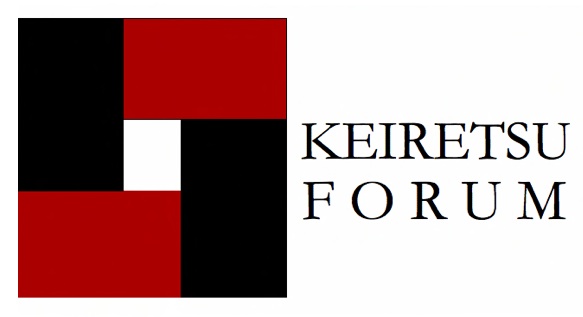

When Technically Philly asks Howard Lubert about his background, he begins by apologizing.
“I’m old,” he says before rattling off a long resume that reads like a rough timeline of the Philadelphia technology industry. After a “very short career” as an administrator at Penn, Lubert worked at IBM, sold Apple II computers and then eventually began several of his own businesses which ranged from a Novell consultancy to SafeHatch, a company that specializes in due diligence.
Now, however, Lubert is one of the two leaders of the Keiretsu Forum Philadelphia chapter, the newly created local branch of the worlds largest investment group with$287 million in deals worldwide. The group, founded in San Francisco, rigorously screens deals for its membership and likes to remain very hands on until its companies sell or reach an IPO.
Lubert, whose brother Ira manages over $11 billion in investments, says that the Philadelphia chapter purchased rights to Pittsburgh and Washington DC chapters as well and will work to build an online “deal room” where Philadelphia presentations are automatically sent to members across the globe.
We talked with Lubert about comparing the Keiretsu Forum with Open Angel Forum, how Philly’s angel community stacks up and how he plans on making Philadelphia lead the charge to revolutionize the Forum.
How did this come to Philadelphia?
I attend a large amount of technology conference every year, one of which is DEMO in California. While at a DEMO, I was sitting at a lunch table and two of the people sitting next to me turned out to be the founder of Keiretsu Los Angeles. Over the years I have had involvement with nearly every angel group in Philadelphia and at the table the [Keiretsu Los Angeles] founders described a methodology that had me instantly intreged.
I eventually met [Keiretsu founder] Randy Williams and Vince Leusner and I decided to do the chapter as a partnership together. We acquired the rights from Philadelphia to Virginia and Philadelphia to Pittsburgh.
One of the things we read about Keiretsu is how its intended to do more than fund a company, that there’s a whole support structure there. What is that structure?
This is a gross generalization, but the typical entrepreneur who gets in front of an investment group, speaks, presents and then answers questions. If they aren’t astute enough to get contact information from the audience, the interaction usually ends right there.
At Keiretsu it’s a one to two [ratio between investors and startups]. Once a company submits, it leads to a screening process by a committee. Then, they are welcomed to a screening meeting where they get a 10-minute presentation and are crituqed. Typically four to five of the best presenters are invited to come back where they present to the entire membership.
Every single investor in the room agrees to complete a “gold sheet” where they fill out what they liked and didn’t about every presentation. They also note their desired involvement. Everything from “we want nothing to do with it” to “I want to lead the due diligence team.” Within 48 hours of a meeting, it is not usual that a due diligence committee is up and running. Usually it takes six weeks to negotiate a term on investment after that.
It’s also about introducing them to other members in 21 other [chapters] around the globe. It’s also about working with them in an advisory a capacity. We stay hands on until a liquidity event.
The folks who created the Open Angel Forum have often been critical of Keiretsu for charging companies. What is your reaction?
I’ve read posts from those folks. If a company submits an application it is reviewed for free. If a company gets invited to a screening meeting, it is done so at no cost to them. When companies are invited back to a forum, our chapter will charge a very modest administrative fee of $1500. There are never any success fees. It is one time, one fee.
The big to do with [the Open Angel Forum] is that they believe entrepreneurs should pitch for free. Well guess what? Somebody has to pay for the venue in which they pitch in. The Philadelphia chapter will not charge a company who is pre-revenue.
We hear entrepreneurs say that there’s not enough early stage investors. Investors tell us there are not enough entrepreneurs. What’s your take?
Both of those statements are on the “gross exaggeation” level. There is a preponderance of early stage deals in Philadelphia. There are a somewhat limited number of excellent early stage deals. There are too many mediocre deals and there are way too many absoultely redicuious deals. There are a limited number of high potential deals.
The problem is that, relatively speaking, the accredited investor hasn’t had the vehicle to see pre-screened deals. He or she is seeing from 100 percent of the population. Therefore, eight of ten deals they see they aren’t interested in. Robin Hood Ventures and Ben Franklin Technology Partners do a fine job screening deals. But the typical accredited investor is not affiliated with any of the angel groups. The vast majority of investors are finding deals by happenstance.
Howard Lubert on the Keiretsu Forum and the “ridiculous deals” in Philadelphia







